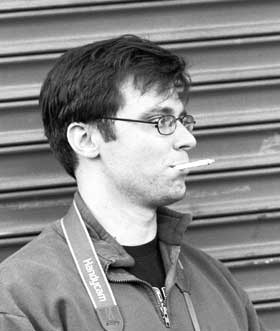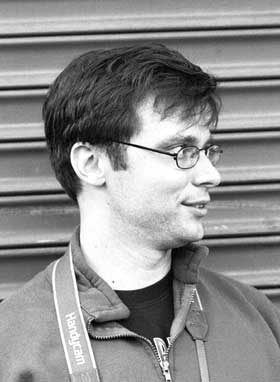In Front Of A Computer
I finished Eiji Yoshidawa's Musashi last night. I said, sometime back, this was a novel I'd read thirty years ago when I'd borrowed it from a friend who was similarly enthusiastic about Hiroshi Inagaki's Samurai Trilogy (and, of course, Kurosawa's Seven Samurai, Rashomon, Yojimbo and all of the others). I assumed Yoshidawa's book, all one thousand pages, was this earlier work, and although it covers similar territory (the period covered by the Trilogy ending with Musashi's duel on Ganryu Island at the age of 28 with Kojiro Sasaki) I seem to recall the earlier work covered his entire life, or, at least, ended with a recap of his later life (he lived to be 61), and, since it too was one thousand pages (large pages, not overly large type for those of you who give out gold stars) it must be the same book. Translated, you know. From the Japanese. So I searched the web again. Nada. So I guess this was it. The memory plays tricks. More often.
The stories of Musashi - the books, the movies - are, for me, about mastering the art of the sword and in a more important sense, the art of the human spirit. The attainment of enlightenment, in other words, although I follow them as a series of clues, somewhat clumsily follow them to hear what they have to say about living a meaningful life in a world of meaning/not meaning, foolishness and folly. Every character is an exercise in extremes: Musashi, master swordsman in the making, Otsu, young, cartoon woman - distracted, love addled, gone gonzo bat shit over Musashi needs immediate psychological attention weirdo woman - a woman of the 50's, in other words. The 1650's. And, as near as I can tell, everyone else including the butcher, the baker and Kojiro Sasaki. The introduction called it the Gone With The Wind of Japan. Could be. I don't know.
The beauty of the Zen thing is its opaque artsy-fartsy character. You can't really get it until you get it, you understand, and people like me can pick up some of the lingo and make cryptic remarks and it sounds, you know, like maybe I know. The theme that keeps my attention is the description of practice. The practice of swordsmanship, of archery, of writing, painting, calligraphy, peanut butter collage. Write. Write some more. More again. I've only written, consistently, at least, for brief periods. I have never gotten beyond beginner. But I've played with it. Played with it in the past, play with it now, think, on occasion, what would I need to do to take it further? Same with photography. There is no particular reason to go further. No reason to take anything in life further if you find your life satisfactory. Right? Right? you get it, you understand, and people like me can pick up some of the lingo and make cryptic remarks and it sounds, you know, like maybe I know. The theme that keeps my attention is the description of practice. The practice of swordsmanship, of archery, of writing, painting, calligraphy, peanut butter collage. Write. Write some more. More again. I've only written, consistently, at least, for brief periods. I have never gotten beyond beginner. But I've played with it. Played with it in the past, play with it now, think, on occasion, what would I need to do to take it further? Same with photography. There is no particular reason to go further. No reason to take anything in life further if you find your life satisfactory. Right? Right?
People who's work I've admired, when I learn about them (generally after they're dead, although these days that's less so with the tabloids and all), they all seem, well, if not crazy, then seriously driven, as Musashi was driven, as every character in Musashi was driven. Living in the forest. Getting in sword fights. Breaking heads. People doing things that eventually lead them to the local news, front page mug shot, smile on face, holding up the statue (or the gun). Is that what writing is about? Good writing? Delusional behavior? Madness?
I got to a point writing a book in the late 70's when I realized the book I was writing was crap. A dumb book, badly written (rewritten and rewritten) with a dumb story. And I needed to trash it and write a book about Arkansas street in San Francisco, my days after school and the army, my days coming to grips with the rest of my life - What now, bucko? - and the stumbling I was seeing all around me. I understood this impasse was just another point on a writer's path, happens to all, but I did not want to write that book. So I didn't.
This is not bad, this coming to grips with the fact that writers write and not writers don't. Write. I remember Nelson Algren's answer to a reporter's question: "I'm not writing a book right now for the same reason I'm not driving a Cadillac. I can't afford the payments." (Or something similar. Sorry, Nelson.) You still have to wrestle the unknown half, of course, writer or not, the part that seems to cause all the damage, but you don't have to write about it. You don't have to sit down and think about it. You don't have to talk about it over dinner. You don't have to kiss it on the lips, stick your tongue in its mouth and coax it post coitus for its story. You can, you know, just put your feet up, watch the game, go to a movie. Write. I remember Nelson Algren's answer to a reporter's question: "I'm not writing a book right now for the same reason I'm not driving a Cadillac. I can't afford the payments." (Or something similar. Sorry, Nelson.) You still have to wrestle the unknown half, of course, writer or not, the part that seems to cause all the damage, but you don't have to write about it. You don't have to sit down and think about it. You don't have to talk about it over dinner. You don't have to kiss it on the lips, stick your tongue in its mouth and coax it post coitus for its story. You can, you know, just put your feet up, watch the game, go to a movie.
And now, too many years later, I'm still treading the same territory, but with better perspective. Musashi reads a poem written by the Zen master Gudo that frees him to fight Kojiro:
I laugh at my ten-year pilgrimage -
Wilted robe, tattered hat, knocking at Zen gates.
In reality, the Buddha's Law is simple:
Eat your rice, drink your tea, wear your clothes.
Stop all the noise, stop all the "stuff" that surrounds us, the societal obsession with acceptance and rejection, what other writers wrote, what other writers write, the reality is you write what you write if you're a writer, you shoot what you shoot if you are a photographer, you eat your food, you pay your rent, you wear your jacket when it's cold. Everything else is illusion. And that seems to sum it up. Now, do I understand that? Yes and no. Did Musashi understand that? Yes and no. Does it matter? Yes and no. On a Sunday afternoon with the sun shining, the light sparkling on the lake, sitting here in front of a computer, typing.
|